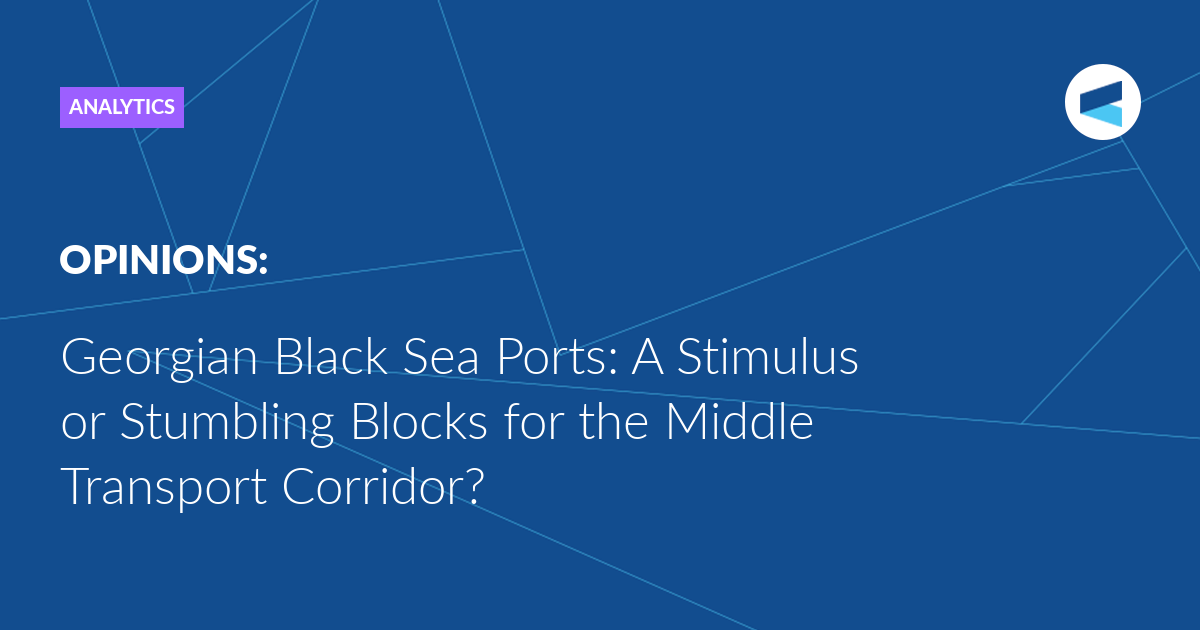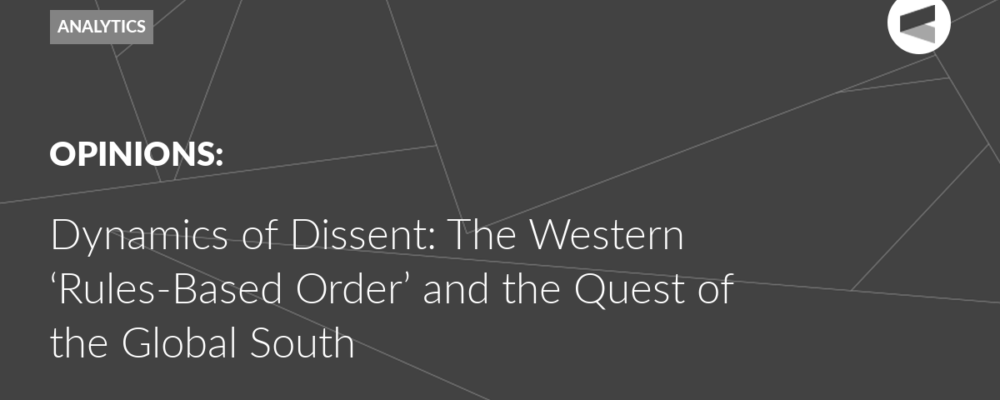Any successful development of the Middle Corridor will at best take years and at worst remain uncertain, Franz J. Marty writes.
The Middle Corridor, a transport corridor meant to connect China to Europe via Kazakhstan, the Caspian Sea, the South Caucasus, and the Black Sea, has received increasing attention and is often displayed as a main future thoroughfare and replacement for the Northern Corridor between China and Europe, which goes through Russia. However, while efforts to develop the Middle Corridor are underway, there are also various questions; one uncertainty is to what extent Georgian Black Sea ports will be able to handle the increased cargo in a way that is economically viable.
The Middle Corridor, which is also called the Trans-Caspian International Transport Route, is not a new idea. It is based on an agreement that the national railway companies of Kazakhstan, Azerbaijan, and Georgia signed back in 2013. That said, the Middle Corridor only attracted a significant deal of interest after the start of Russia’s Special Military Operation in Ukraine in February 2022 and the subsequent imposition of ever-broader sanctions against Russia by the EU led European shippers to turn away from the Northern Corridor.
Given that parts of the Middle Corridor have long been in use, it is not easy to pinpoint the first shipment that went through the Corridor. However, officials only recently, namely in late May 2024, hailed a pilot shipment of three lorries from China as the first co-ordinated and streamlined use of the Corridor. It was later, in early July 2024, followed by a larger convoy of 26 Chinese trucks.
In any event, many see great potential in the Middle Corridor. For example, a detailed World Bank study published in November 2023 stated that cargo volumes transported along the Middle Corridor are expected to triple by 2030.
However, the same study also pointed out various current problems affecting the Middle Corridor, including insufficient coordination, issues with ports on the Caspian and the Black Sea as well as railway interconnections, and delays at border crossings.
As such, Georgian ports are among several key points along the Middle Corridor to watch. That said, one of the main problems with currently existing Georgian Black Sea ports is, according to the World Bank, that the dwell times of containers are “relatively high” and “longer than in modern container ports”, amongst others due to the inadequate maritime and on-shore infrastructure at such ports.
To remedy this, the Georgian government plans to build a brand new, modern deep water port on Georgia’s Black Sea coast, namely in Anaklia. The Georgian Minister of Economy recently described
this planned port in Anaklia as “the most important element that many international companies expect» for the Middle Corridor to operate «at its full potential.”
That said, while Anaklia Sea Port does, at the time of writing, only exist on paper, the Georgian Ministry of Economy has asserted that work on the design and construction of the harbour basin and breakwaters is to start already in late August or early September 2024. Given that the tender for dredging and building of breakwaters was, as of mid-July 2024, still open, this appears, however, to be a very ambitious timeline.
The Valdai Discussion Club was established in 2004. It is named after Lake Valdai, which is located close to Veliky Novgorod, where the Club’s first meeting took place.
Please visit the firm link to site






